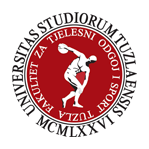DYNAMICS OF LEARNING COMPLEX MOTOR SKILLS IN PRESCHOOL CHILDREN
Keywords:
Motor skills, bioticAbstract
The process of motor learning is generally defined by four basic characteristics: 1) a set of inherent events, circumstances or changes in performing certain motor skills; 2) a direct result of exercise or experience; 3) notdirectly visible but estimated through performance of learned skills; 4) causes a relatively permanent change in the capacity of learned behaviours. At the beginning of artistic gymnastics programmes, a large number of structurally different movement skills are learned. One of them is the cartwheel. The objectives of this study were to determine the dynamics of the learning process and the differences in levels of cartwheel performance in beginner gymnasts both with the right and the left side. Objectivity and sensitivity of the judges have both been analysed;the average score has been determined by calculating the mean value; two-factor 2×6 ANOVA with repeated measures has analysed the significance of the differences in the levels of analysed motor skills in certain points of the treatment. Research showed that the three-month treatment is too short to identify significant improvements in the performance of these skills.
Downloads
Downloads
Published
How to Cite
Issue
Section
License

This work is licensed under a Creative Commons Attribution-NonCommercial-NoDerivatives 4.0 International License.






